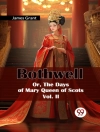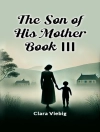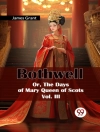Elder Conklin, penned by Frank Harris, is a compelling novella that intricately explores the complexities of human relationships and the moral ambiguity of fidelity. Set against the backdrop of early 20th-century America, Harris employs a vivid and conversational prose style that reflects the social realities of the time, illuminating the interplay between societal expectations and personal desires. Through the character of Elder Conklin, a scheming yet charismatic figure, readers encounter themes of manipulation, faith, and the darker recesses of the human psyche, inviting critical reflection on the nature of truth and self-deception. Frank Harris, an Irish-American journalist and writer, was known for his controversial views on morality and mastery of wit. His experiences as a candid observer of life—ranging from his time spent in the literary salons of London to his tumultuous journalism career—have significantly influenced his writing. This rich tapestry of influences is evident in Elder Conklin, where Harris delves into the psyche of his protagonist, drawing on both personal and societal dilemmas faced during his era, thereby crafting a narrative that resonates with existential inquiry. Readers who appreciate nuanced character studies and morally intricate plots will find Elder Conklin to be a rewarding addition to their literary repertoire. Harris’s eloquent narrative not only entertains but also prompts profound reflection on the nature of belief and betrayal, making it a critical read for those interested in the intersections of ethics and human behavior.
عن المؤلف
Frank Harris (1856–1931) was an Irish-American editor, journalist, and author, known for his exuberant personality and controversial opinions. Born in Ireland, Harris emigrated to the United States, where he pursued a diverse writing career, spanning journalism, fiction, and autobiography. His literary style is often characterized by vivid description and a propensity for exploring contentious subjects with an audacious frankness that mirrored his own life’s rebellious trajectory. ‘Elder Conklin and Other Stories’ (1894) is one of his noteworthy fiction works, showcasing Harris’s skill in portraying the stark realities of American frontier life through a collection of powerfully drawn characters and narratives. In these stories, readers are immersed in the moral and social dynamics of the Midwest, gaining a window into the rugged individualism and societal tensions of the time. The book stands testament to Harris’s talent for short fiction, underlining his ability to capture the complexity of the human condition within the microcosm of rural American society. Frank Harris’s contribution to literature extends beyond his short stories; he authored several other works, including his four-volume autobiography ‘My Life and Loves, ‘ which is infamous for its explicitness and has overshadowed his other achievements. Despite its notoriety, Harris’s literary output is a testament to his larger-than-life persona and enduring impact as a writer who challenged the norms of his era.












